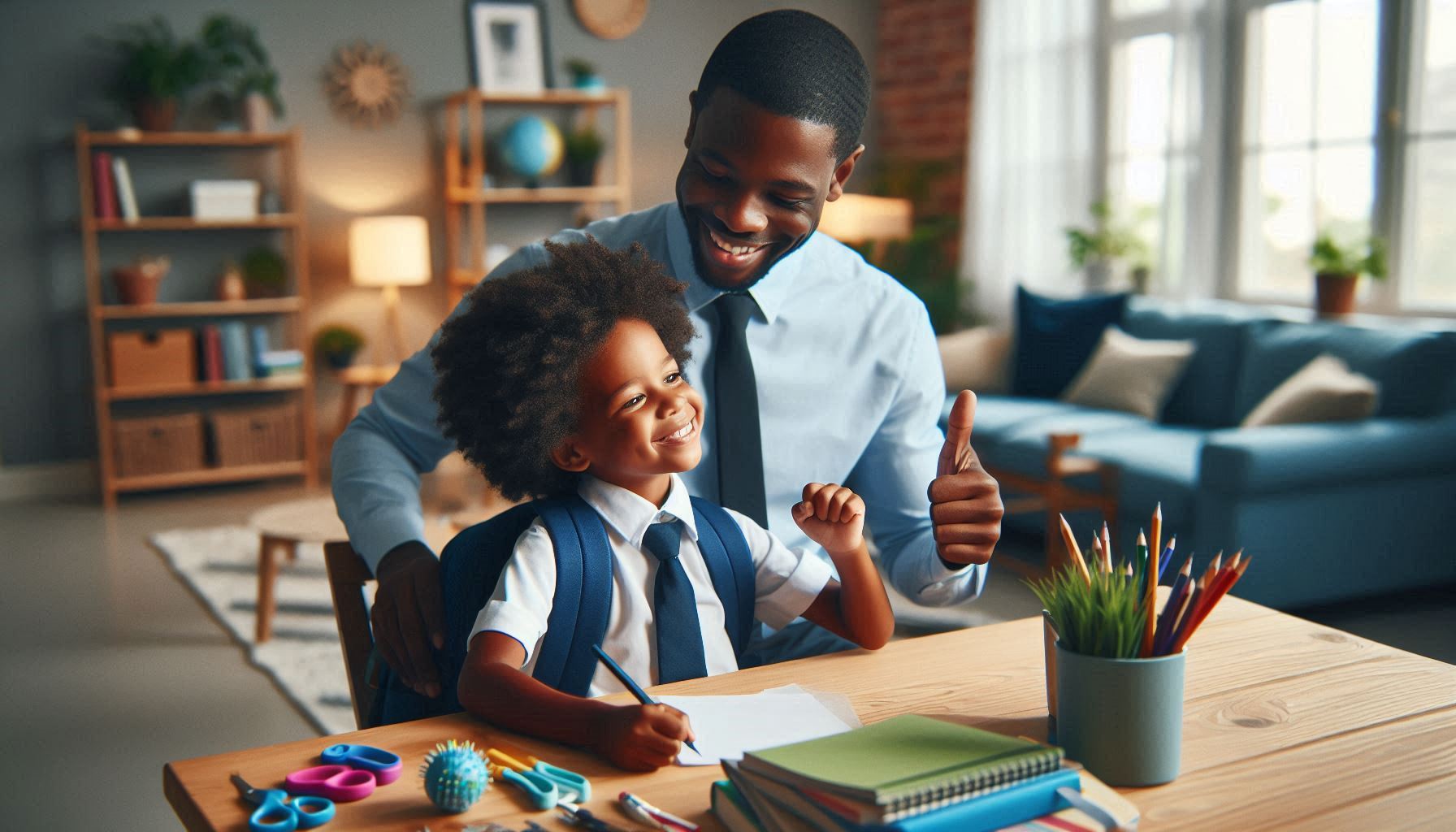M.E. Foundation INC © 2023 All rights reserved

Hello dedicated parents and caregivers! As summer draws to a close, the excitement and anticipation of a new school year begin to build. For children with disabilities, transitioning back to school can present unique challenges. However, with careful preparation and the right strategies, we can ensure a smooth and successful start to the academic year. In this guide, we’ll explore practical tips and resources to help you prepare your child for a positive school experience.
Establishing a consistent routine is essential for helping your child adjust to the school schedule. Start by gradually shifting bedtime and wake-up times to align with the school schedule. Create a visual schedule that outlines daily activities, including school hours, homework time, and extracurricular activities. Consistency and predictability can help reduce anxiety and make the transition smoother.
Establish open communication with your child’s teachers and school staff. Schedule a meeting before the school year begins to discuss your child’s needs, strengths, and any accommodations they may require. Share information about your child’s Individualized Education Program (IEP) or 504 Plan, and ensure that all relevant staff members are aware of the support your child needs.
Building a support network within the school community can be invaluable. Connect with other parents of children with disabilities, join parent support groups, and stay in touch with school counselors. Having a network of people who understand your child’s needs can provide emotional support and practical advice throughout the school year.
Help your child become familiar with the school environment before the first day. Visit the school together, explore the classrooms, and meet the teachers. If possible, practice walking or driving the route to school. Familiarity with the school setting can help reduce anxiety and build confidence.
Role-playing can be a powerful tool for preparing your child for social interactions. Practice common school scenarios such as greeting classmates, asking for help, and participating in group activities. Role-playing can help your child feel more comfortable and confident in social situations.
Personalized school supplies can help your child feel more prepared and excited for school. Label their belongings with their name and consider using color-coded folders and binders to keep things organized. Having their supplies in order can reduce stress and help them stay focused on their studies.
For children with sensory needs, choose school supplies that are sensory-friendly. Consider items such as noise-canceling headphones, fidget toys, and textured pencil grips. These tools can help your child stay calm and focused in the classroom.
Back-to-school anxiety is common among children with disabilities. Encourage open communication with your child about their feelings and concerns. Practice relaxation techniques such as deep breathing exercises and mindfulness activities to help manage anxiety. Reassure your child that it’s okay to feel nervous and that you are there to support them.
Building your child’s self-esteem is crucial for their overall well-being. Celebrate their achievements, no matter how small, and provide positive reinforcement. Encourage them to set realistic goals and praise their efforts. A strong sense of self-worth can boost their confidence and resilience in school.
Preparing your child with disabilities for a successful school year requires thoughtful planning, open communication, and a supportive environment. By establishing routines, communicating with the school, and addressing your child’s emotional and sensory needs, you can help them transition smoothly and thrive academically. Remember, every child is unique, and finding the right strategies takes time and patience. Here’s to a successful and fulfilling school year!
M.E. Foundation INC © 2023 All rights reserved